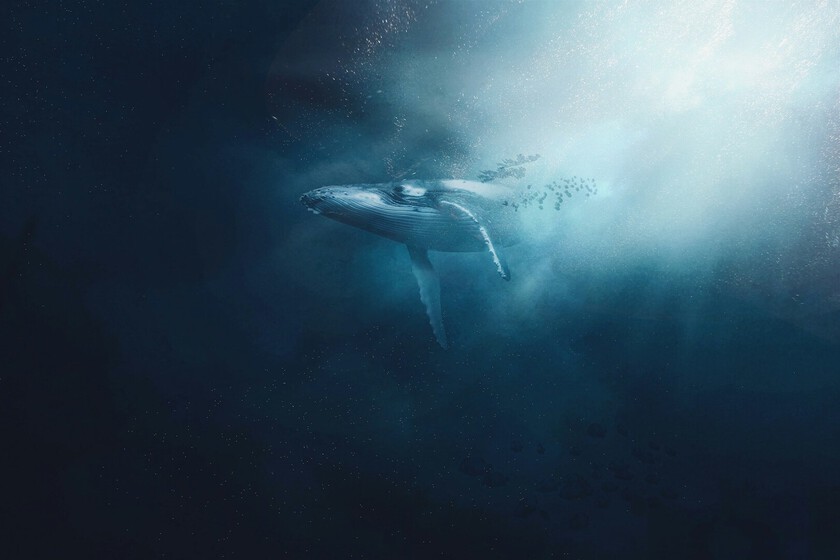Drawing a parallel to fertilization processes on land, cetologists imagined each of these ascents as a festival for shallow-water species. And the truth is, it is.
What no one expected, though, was the pee thing. According to a new study published in Nature Communications, whale urine is vital to the health of marine ecosystems.
Whale pee is a serious business. One of these mammals can produce nearly 250 gallons of urine a day. Yet few ever considered that this dark yellow liquid—turning the water green in its path—might be more than just pee. Until now.
“The big surprise of the study is that urine far outweighs the other sources of nitrogen,” Joe Roman, a conservation biologist at the University of Vermont who led the study, said.
Missing a nutrient? Ask a baleen whale. Roman’s team discovered that baleen whales transport enormous amounts of nitrogen and phosphorus from the polar areas where they feed to the tropical regions where they breed. Much of this transfer depends on nutrient reserves they build up in the polar zones. Without those nutrients, “marine plants and animals wouldn’t survive.”
A Whale Sets a Migration Record by Crossing Three Oceans to Breed—And That’s Bad News
A nutrient bomb. The researchers studied how much nitrogen and organic matter baleen whales move throughout the ocean—not just with pee, but through their placentas and carcasses as well. They estimated each whale moves 3,784 tons of nitrogen and 46,512 tons of organic matter into nutrient-poor areas each year.
And that’s a lot. “In a place like Hawaii, the whales are bringing in more nitrogen than is being transported by wind and currents,” Roman said.
Heidi Pearson, professor of marine biology at the University of Alaska Southeast, told National Geographic that “these nutrients stimulate phytoplankton growth at the ocean surface and also enrich deep sea ecosystems.”
An incomplete world. Experts are beginning to recognize the massive ecological impact of whaling—and the near extermination of many species. For centuries, humans have disrupted vital ocean mechanisms without realizing it.
Now that we know, changing course won’t be easy. But the idea that the ocean would be vastly different without whale pee and poop reminds us just how much there’s still to do.
Image | Gabriel Dizzi (Unsplash)
Related | If You Ever Get Swallowed by a Whale, Don’t Panic. Scientists Say There’s No Reason to Be Afraid
The post Thousands of Marine Ecosystems Depend on One Thing: Whale Pee and Poop appeared first on Xataka On.




